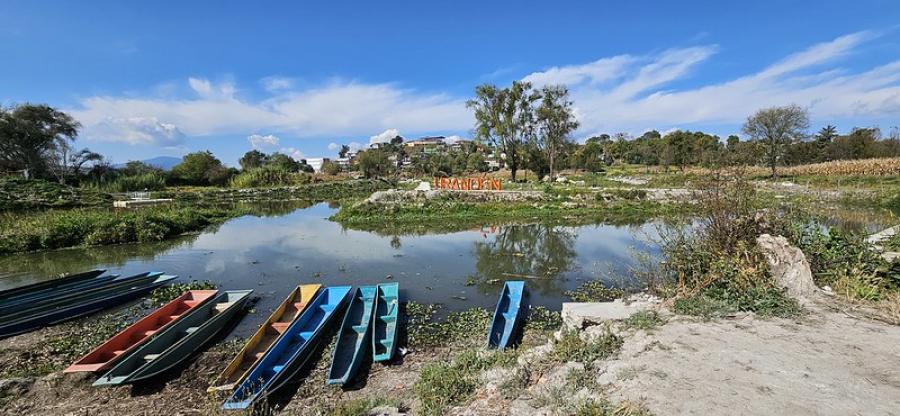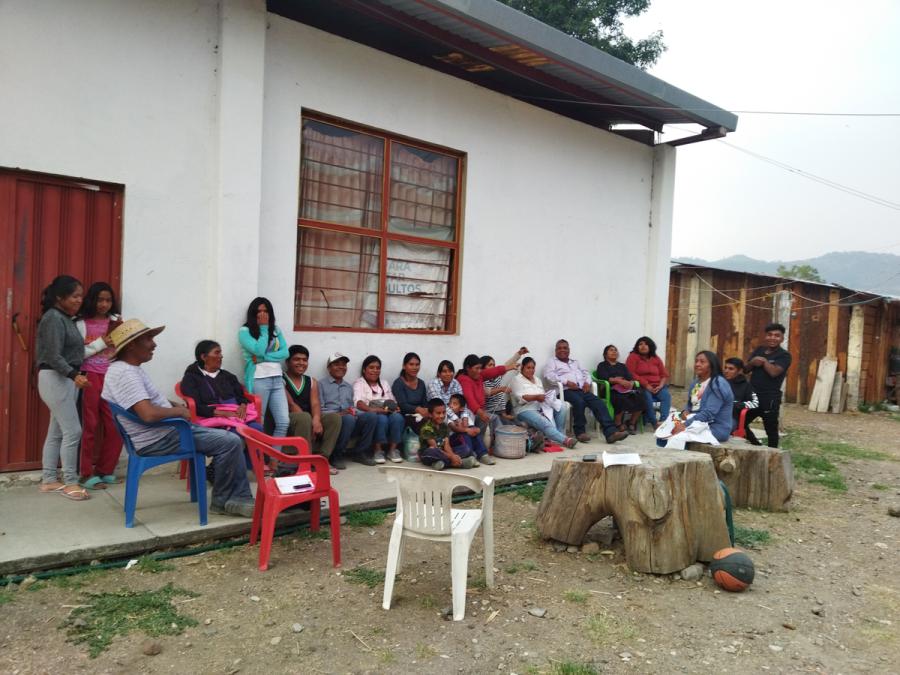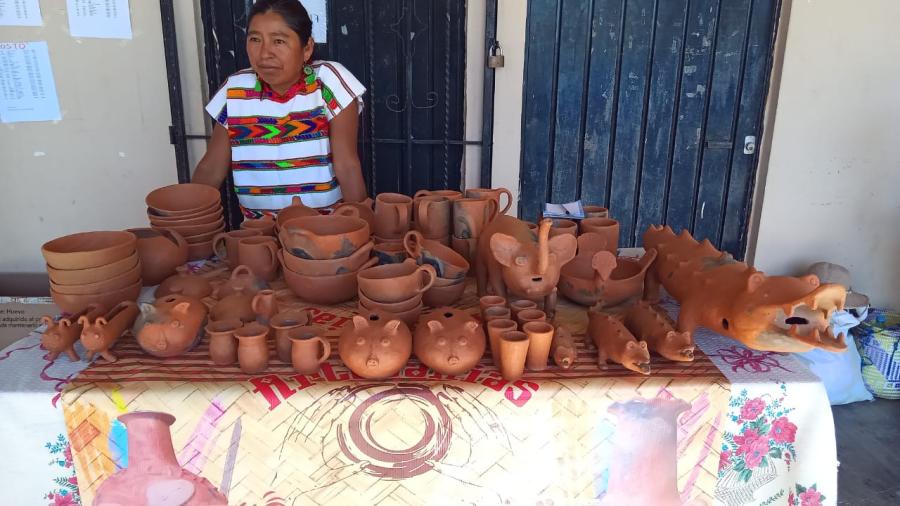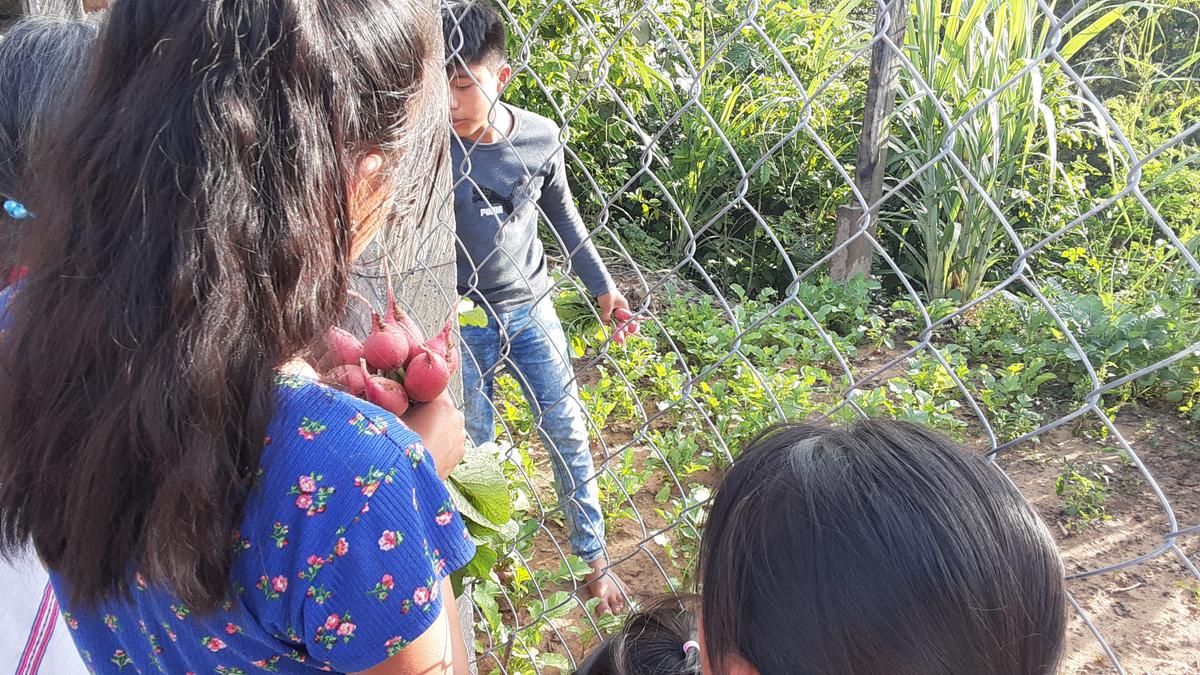
By Sandra Peláez (CS Intern)
The Sakil K'inal Collective is an initiative led by five Tseltal youth, who have been implementing agricultural initiatives in backyards and family gardens in the community of El Pozo, San Juan Cancuc, Mexico, since 2017. The collective began its activities at the Intercultural University of Chiapas. However, due to the commitment and passion of its founding members to generate a positive impact in their community, in 2021, they became a youth collective, seeking to carry out productive and research-based projects, as well as systematize local knowledge for and from the community. A fundamental focus of the collective's work is recognizing that, despite being members of the community in which they carry out their projects, different realities and needs within that community require attention.
Therefore, their projects always consider the individual and family needs of the community members. Agriculture in El Pozo faces various challenges, including population growth and the increased use of land for domestic purposes, which reduces the land available for crops. Furthermore, climate change has negatively impacted agricultural production, both directly affecting resources such as changes in rainfall or soil quality, and reducing people's workloads, as they report that conditions like heat cause workdays to be shortened due to fatigue.
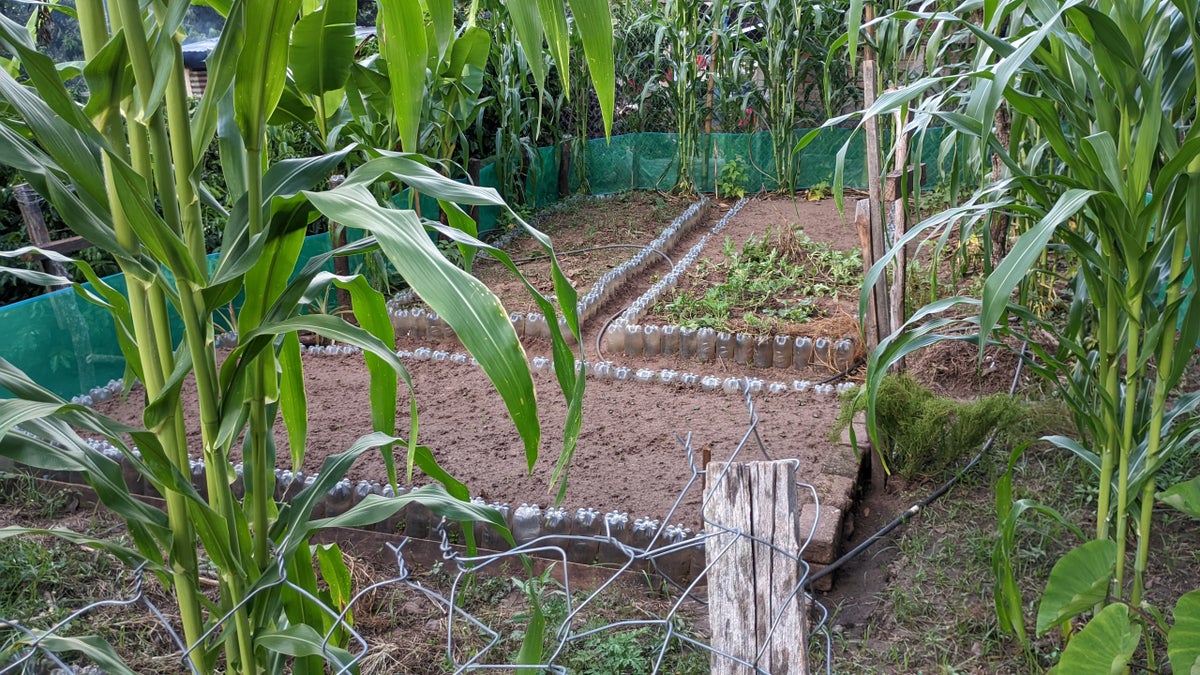
Beds for soil conservation with recycled materials.
For this reason, the Sakil K'inal collective has implemented projects to address the needs of families around their home gardens. With the help of the KOEF fund, in 2024, the needs surrounding soil conservation practices were met, based on a conscious stance that recognizes that each home garden has unique characteristics, making it impossible to apply standardized models to benefit them. With this in mind, they implemented interventions to raise awareness about the value of soil and shared strategies for its conservation, including the use of living and dead barriers, as well as methods for soil fertilization. Complementing these activities, they shared methods for creating natural fertilizers, such as vermicomposting and the reuse of coffee husks in crops.
Pest control topics were also addressed, encouraging participants to consider the distinction between pests and natural allies. They raised awareness about the damage caused to the soil by the use of agrochemicals. They also shared ways to control pests using local resources such as tobacco, horsetail, and even neutral soap. Informative workshops were held on the identification of medicinal plants and the importance of preserving native seeds, reflecting the tremendous genetic diversity that communities like El Pozo are guardians of. Together with the community's children and youth, they even created the “Catalog of the Tseltal El Pozo Family Garden: A Contribution from the Families.”
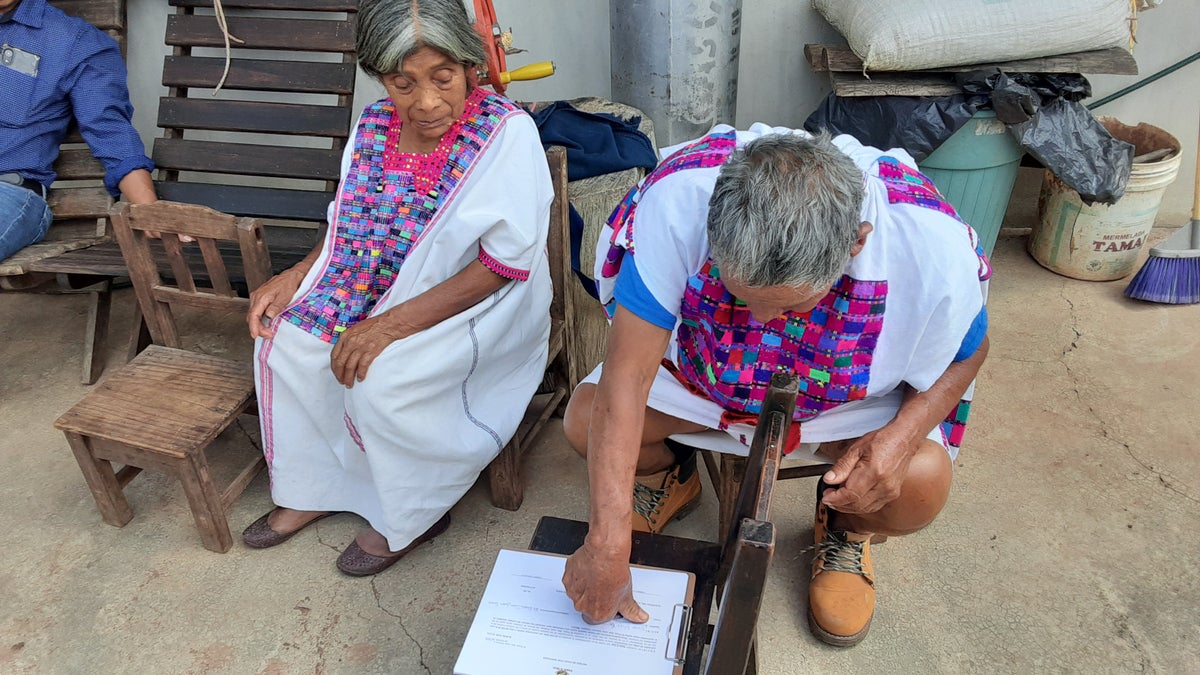
It's worth noting that the workshops and spaces held not only created an impact through reflection and strengthening community knowledge. They were also provided with materials and tools for applying the techniques mentioned in the workshop. One of the things they are most grateful for is the netting that serves to protect the crops from external threats such as chickens or dogs that eat them. “Wokol la yalik te mach’atik la ya k’ik smakib jmutike sok kawal jts’unubtike soknix te jkatejibtike, ya sta stu’ukik; jujun k’a-al ya xtu-unkunti…/Thanks to those who supported us with the tools and nets to protect our crops, they are very useful to us; we use the tools every day to plow,” says Magdalena, 54 years old.
For the collective, the inclusion of all community members is essential. This includes women, who have been disassociated from agricultural activity, even though many of them, especially those who, for various reasons, do not have a male counterpart in their homes, have had to become involved in the fields to carry out subsistence activities. Likewise, they consider the inclusion of grandfathers and grandmothers essential, as they are guardians of the community's knowledge, which is inherited from their fathers and grandfathers. As an example of the participation of older generations in the project, spaces were created to share their knowledge with the rest of the community, especially those related to weeds (herbs that grow in a suitable place or time, which can be wrongly called "weeds" in other contexts) and their fundamental role in conservation and diversification of family gardens.
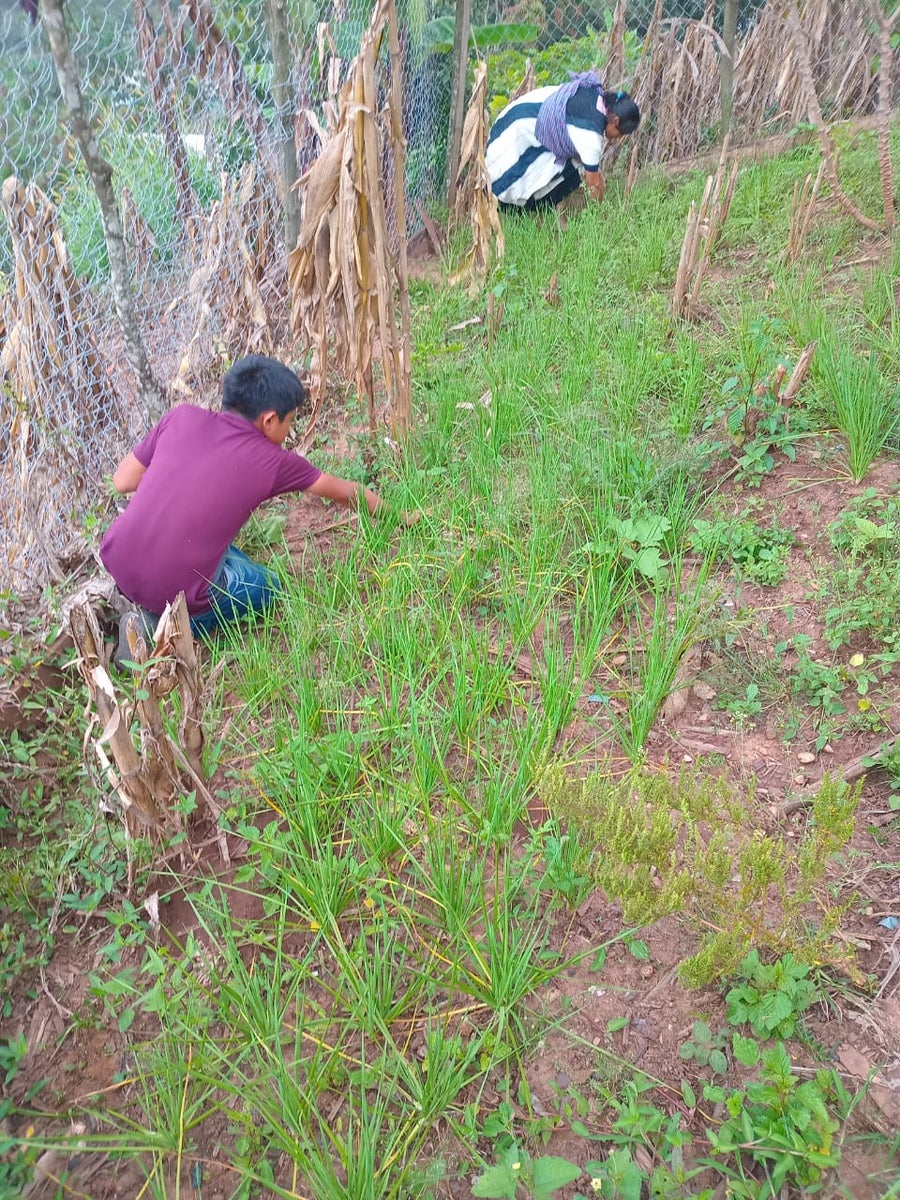
Growing venice and chives.
In this regard, educational spaces were held where different weeds were identified in the gardens that are useful for families, including edible and medicinal ones. Various ways of consuming and preparing them were shared. These spaces also allowed people to reflect and consider how these plants and the diets of grandparents, unlike those of younger generations, have health benefits. This serves as an example of how the preservation of community knowledge can benefit new generations and the impact that proper environmental stewardship has on the body.
Projects like this not only seek to achieve food sovereignty within their communities by improving conditions for agricultural production, preserving seeds and plants, and facilitating agriculture as a means of subsistence for local people. If not, it also impacts the way they connect with their ancestors and the knowledge they have inherited. It strengthens the social fabric from an intergenerational perspective, where each member is considered an essential agent, from childhood to the elderly, including grandparents. It also seeks to decentralize agricultural activity away from the male gender, taking into account the active participation many women have in their gardens. Above all, it has led to a rethinking of the way they relate to the land and the food they consume, and invites all those who know their story to reflect on it.
In 2024, Sakil K'inal Collective received a Keepers of the Earth Fund grant to continue their work on reconditioning the family garden as a strategy to contribute to the food self-sufficiency of families and combat the effects of climate change in their community. The work carried out included knowledge exchanges, plot improvements, and training in soil conservation techniques, natural pest control, and the preparation of natural fertilizers from locally available materials.
Top photo: Sharing the first harvests.
